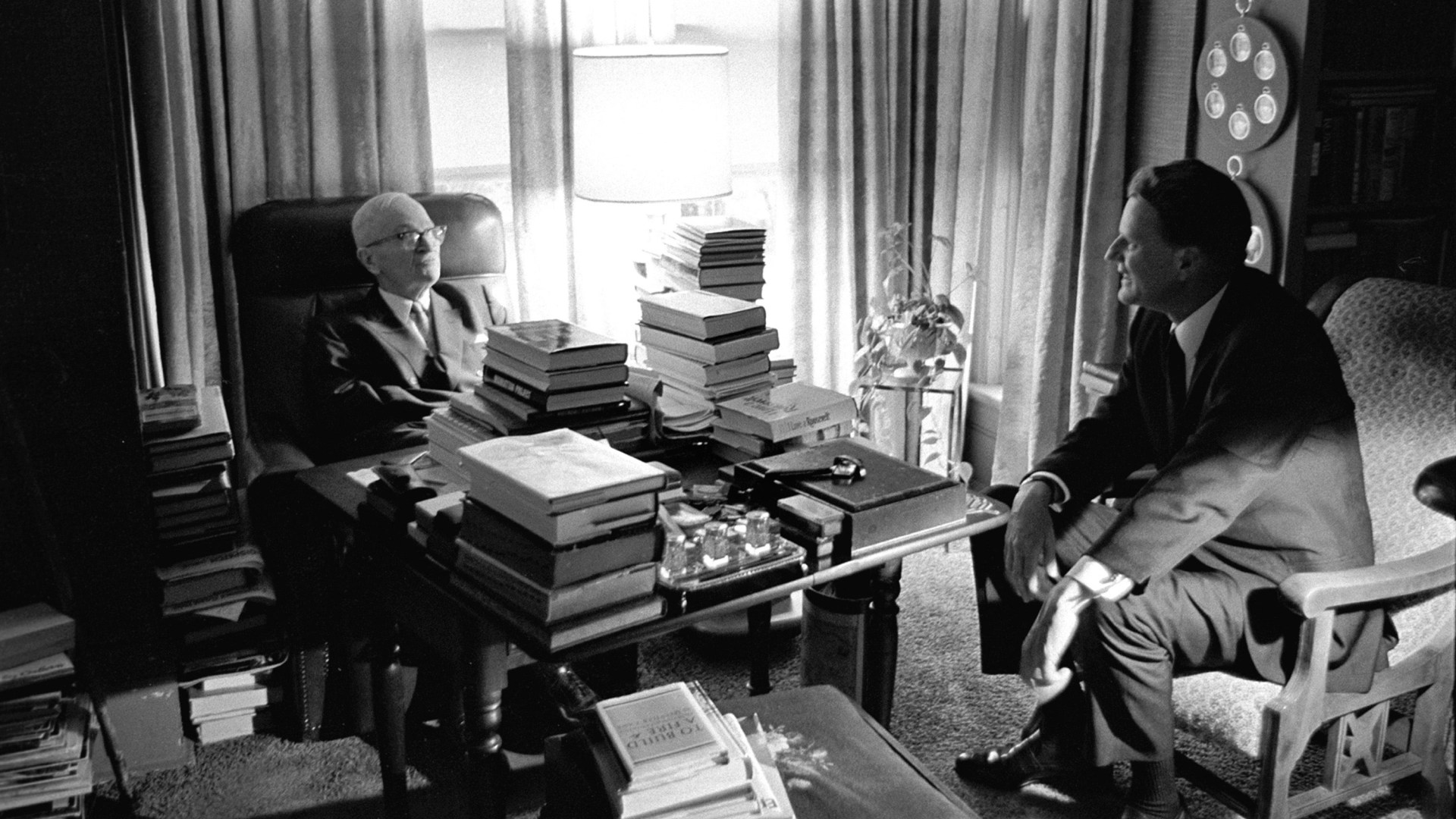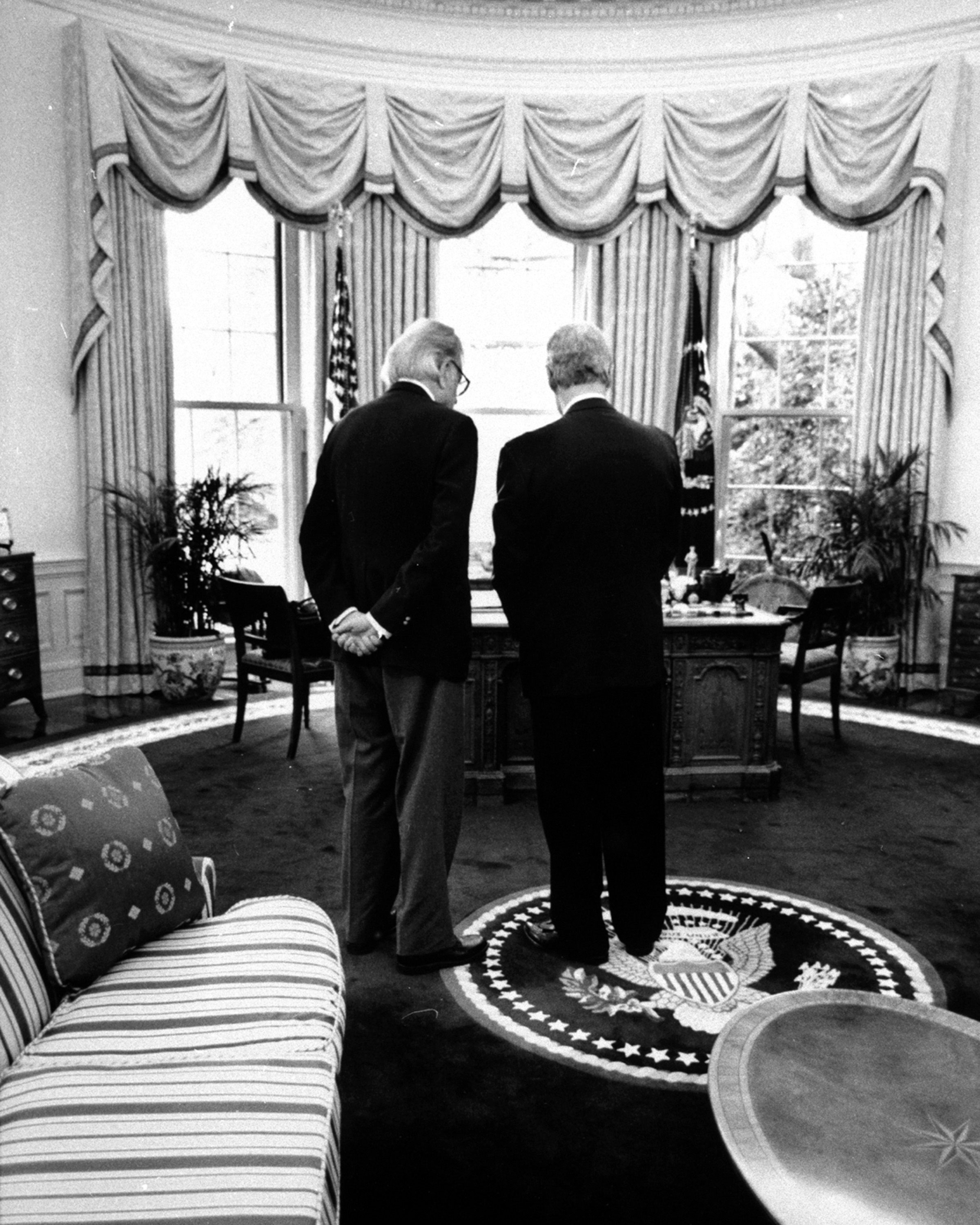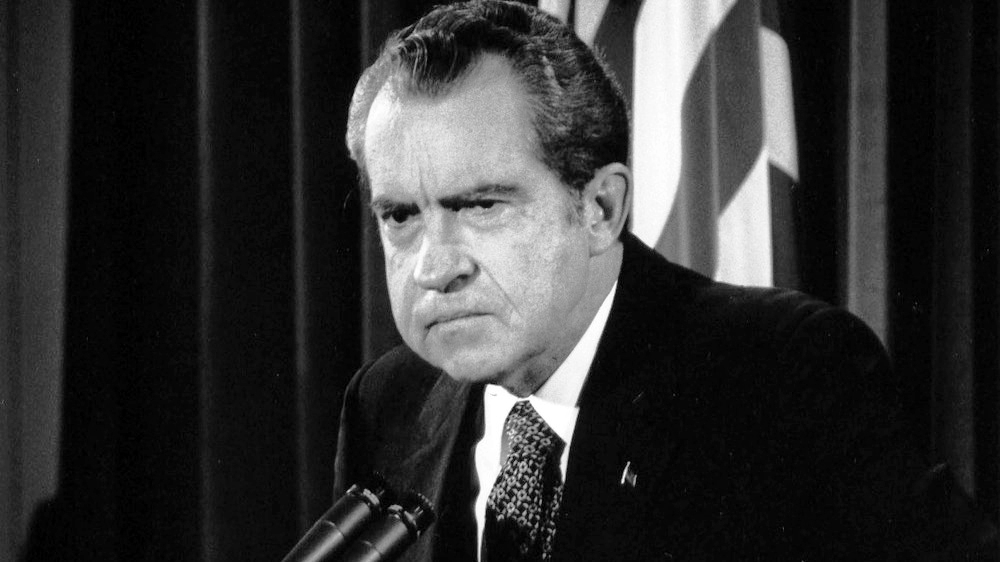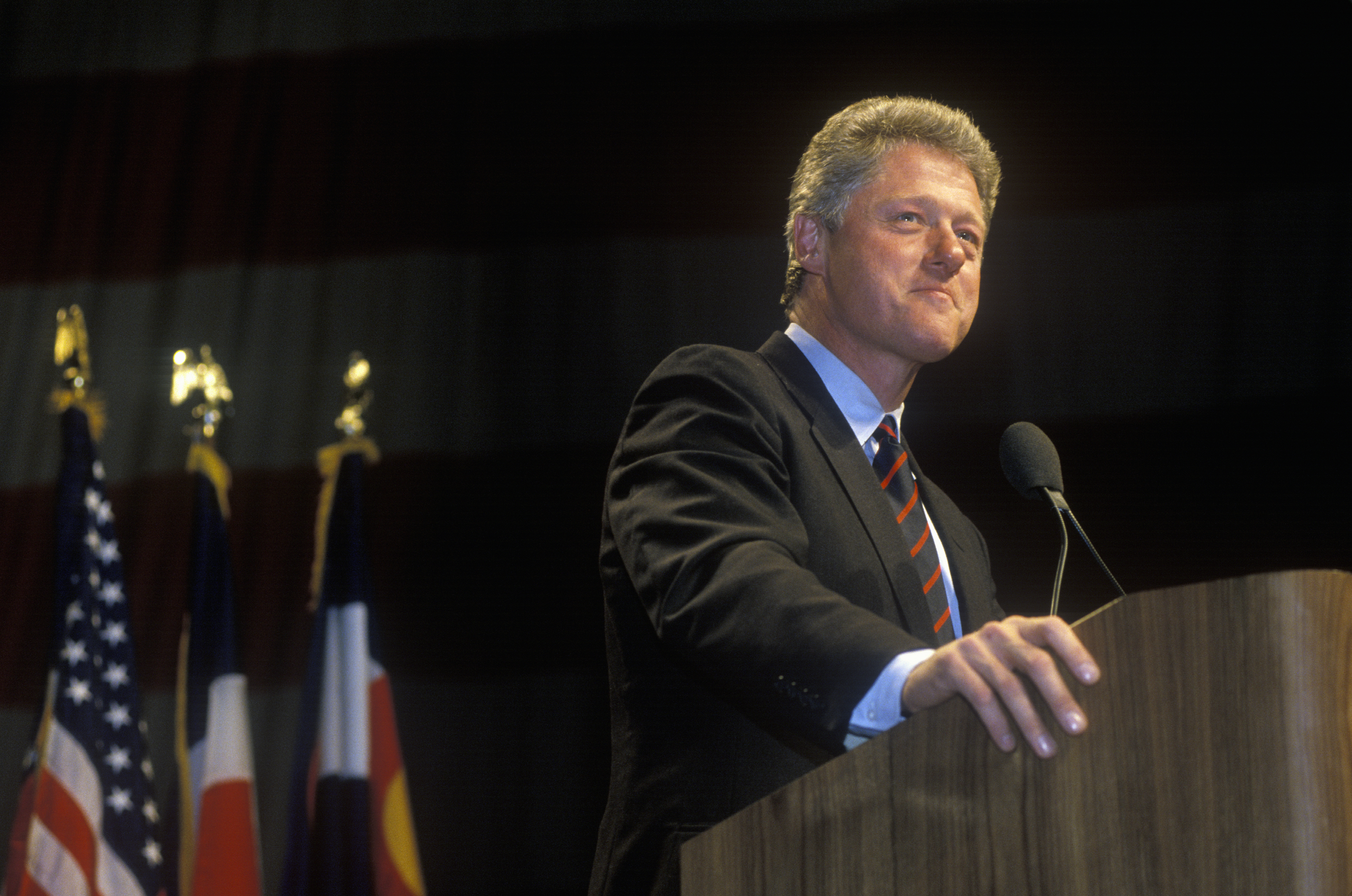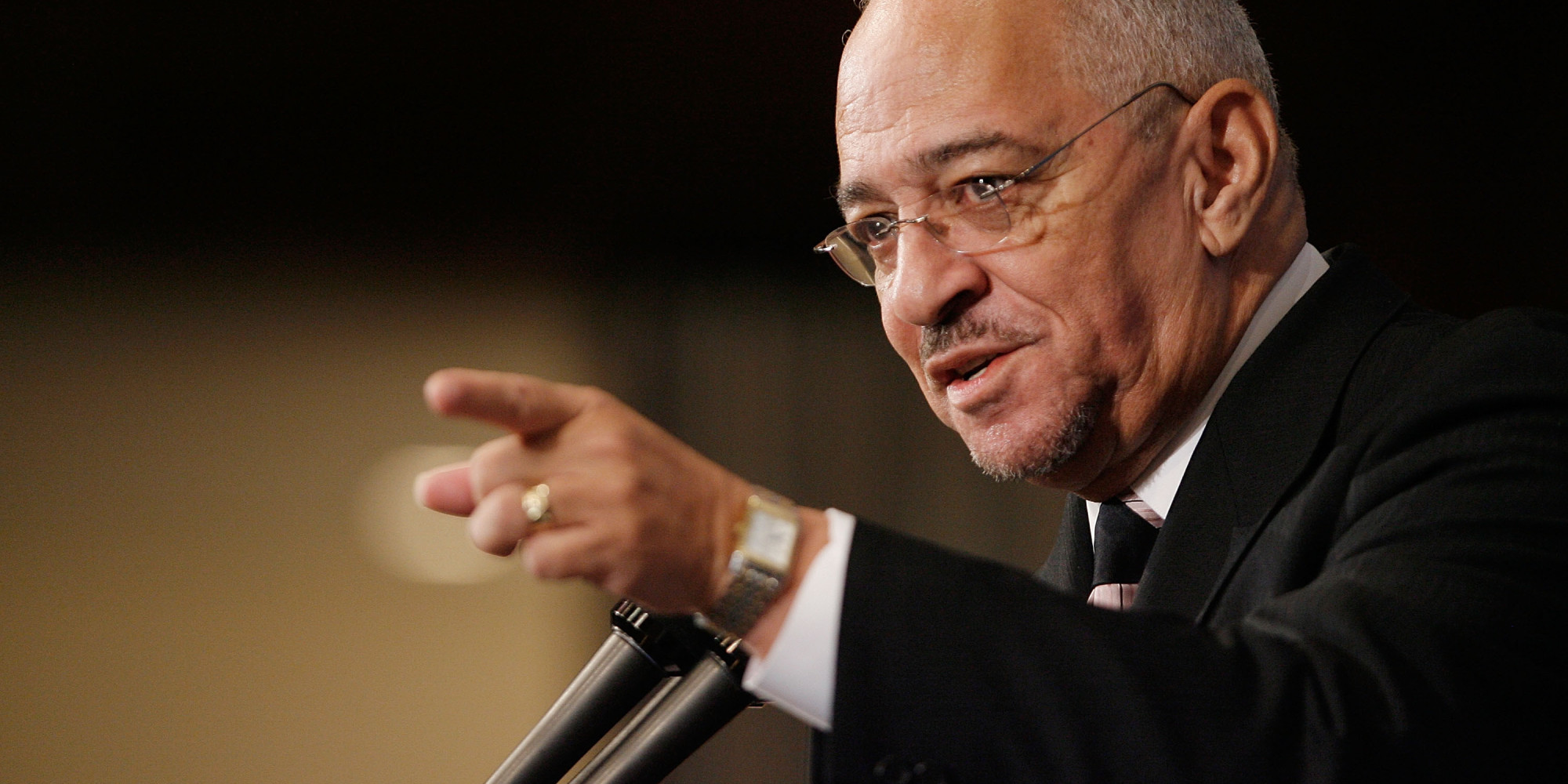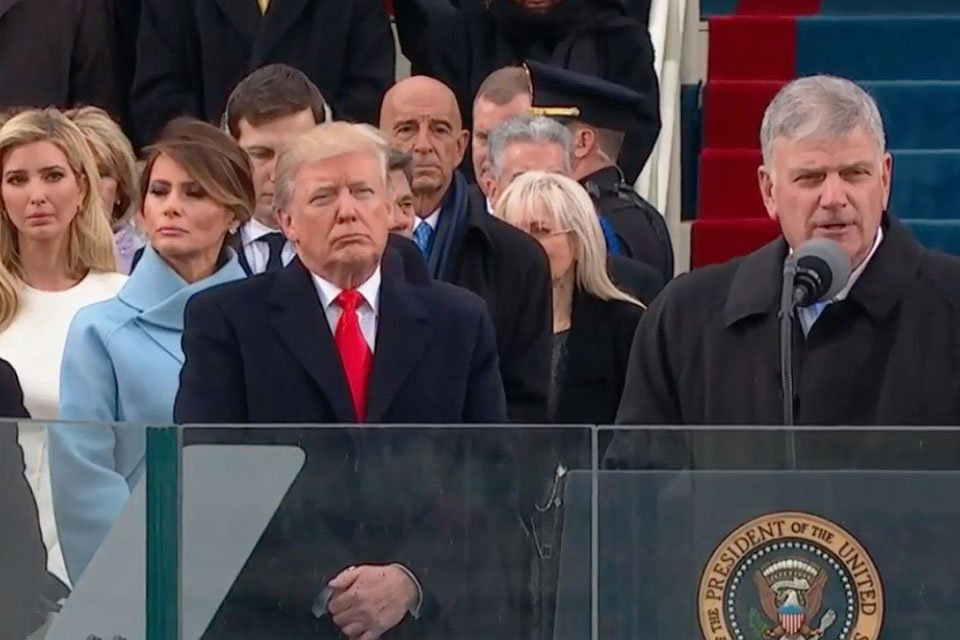President Harry Truman was furious. Billy Graham had revealed the content of their private conversation to the media, going so far as to perform a “reenactment” of their prayer time on the White House lawn at the media’s request. It was the first time Truman had invited Graham to the White House, and it would be the last.
Earlier that day, Truman had sought Graham’s counsel on calming public hysteria around the Korean War effort. The meeting had gone well, according to Graham. They even discussed creating a National Day of Prayer, something Truman would implement two years later. But Graham’s unpolished enthusiasm and lack of experience with public officials cost him the ear of the President that Friday in 1950 and almost cost him his reputation altogether.
Calling the evangelist a fake, the President harshly reprimanded him. “All he’s interested in is getting his name in the newspaper,” Truman said of Graham. He did not speak to him again for years after that.
Graham’s meeting with Truman was the first of many encounters with American leaders over a span of more than 50 years. His blazing misstep with Truman, however, was a hard lesson he never forgot: When the world is watching, trust between a president and his spiritual advisors becomes even more fragile.
Billy Graham’s Mutual Respect

For Graham, presidential relationships were grounded in mutual respect. After his mishap with Truman, he never shared the details of private meetings he held with public leaders.
Though he did publicly call out President Lyndon B. Johnson on a position during one of his Crusade meetings (as Graham details in his autobiography), they became close during Johnson’s time in office. Graham knew Johnson to be a spiritual man who attended church sometimes two or three times a week. He recalled Johnson’s words at the National Prayer Breakfast in 1964, about his need for the strength and support of earnest and frequent prayer, commenting that “those were not the words of a desperate man on a sinking ship. They revealed faith in a Friend who could help.”
At the same time, Graham knew that Johnson was “not a saint”—in fact, according to LBJ biographer Robert Caro, Johnson was known to have had multiple affairs, even claiming at one time, “I have had more women by accident than John F. Kennedy has had on purpose.” Graham was not afraid to confront the President on his behavior, either.
“When I spoke warmly about his spiritual convictions, I was not forgetting his inconsistencies and transgressions,” Graham said. “Did he intimidate me? Maybe just the opposite: I think I intimidated him a little. He liked having an old-fashioned Baptist preacher around for personal as well as political reasons, but I did not avoid taking issue with him or probing his soul whenever I thought it necessary.”
Billy Graham’s son Franklin, president and CEO of the Billy Graham Evangelistic Association and of Samaritan’s Purse, said his father was willing to meet with many of the presidents in order to share the gospel, not just within the Oval Office but also with White House staffers whom he came in contact with at those meetings. However, Franklin Graham admits that sometimes political leaders can exploit their relationships with pastors and evangelists for political gain. In fact, Franklin Graham wonders if his father’s popularity with presidents didn’t sometimes hinge on his popularity with the people.
“First of all, politicians want votes,” Franklin Graham said. “They saw Billy Graham as someone who was popular, with a large following. So it was in their political best interest to align themselves with him. There’s no doubt that some people may have used my father for that.”
How Watergate Wrecked a Friendship

When the Watergate tapes were released, Billy Graham didn’t even recognize the man he heard.
Graham first met Nixon as a young boy, through his mother, Hannah, who had attended Graham’s 1949 Los Angeles Crusade. The evangelist came to know Nixon not only as a president, but also as a personal friend.
When Watergate came to light, he was blindsided. He had held Nixon in such high regard for so many years that it was difficult for him to reconcile the character of the man he knew with that of the man heard on the tapes.
“Never, in all the times I was with him, did he use language even close to that,” wrote Graham. “I felt physically sick and went into the seclusion of my study at the back of the house. Inwardly, I felt torn apart.”
“There was a side of Nixon that my father had never seen, and that concerned him,” Franklin Graham explained. “He wondered if he had gotten too close to Nixon, and maybe stepped out of a role he should have really stayed in.”
The President had not confided in him about his mounting troubles. After the full story broke, he all but blocked the evangelist’s access to him during the rest of his presidency.
“I wanted to believe the best about him for as long as I could,” Billy Graham wrote. “When the worst came out, it was nearly unbearable for me.”
Pastoring Clinton Through a Sex-Scandal
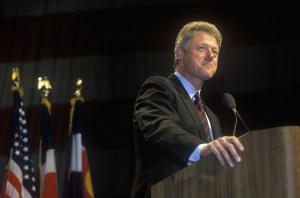
In large part, it was Billy Graham’s popularity that made him appealing to most modern presidents. Being seen with “America’s Pastor” gave politicians inherent cachet with Graham’s constituency of evangelical Christians.
On the other hand, Foundry United Methodist Church pastor J. Philip Wogaman preferred to work behind the scenes. A soft-spoken, personable man with a background as a seminary professor of Christian ethics, Wogaman had only begun preaching at the age of 65. Situated down the street from the White House, the church was accustomed to visits from various Washington politicians. Wogaman never anticipated that merely making his church available to the President would lead to him being thrust into the middle of public scandal.
One Sunday in 1993, the last thing on Wogaman’s mind was meeting a president. A snowstorm hit Washington, DC, with the wind chill bringing temperatures below zero. Many nearby churches had canceled services. Roads were closed. Some of the church staff were unable to get to church, and Wogaman wasn’t sure about the parishioners.
But Foundry was close to a subway station, and Wogaman was determined. If someone showed up, he would be there.
Just as he was wrapping up the 9:30 a.m. service, two unexpected visitors with earpieces arrived and whispered in his ear. Less than an hour later, President William “Bill” Clinton and his family walked through the door.
There was no fanfare or drama on that Sunday. The Clintons became a regular fixture at the church, and the church adjusted in subtle ways. The church members got used to seeing the Secret Service and agreed to extra security measures like installing metal detectors at the door. With Democrats and Republicans alike in the congregation, including Clinton’s future political rival Senator Bob Dole, Wogaman worked hard to keep sermons on a spiritual track rather than a political one. The Clintons attended at least once a month, regularly participating in the life of the congregation.
When the President’s sexual relationship with White House intern Monica Lewinsky was uncovered, Wogaman was thrust into the national spotlight. He took great pains to treat Clinton’s personal issues with the same respect and confidentiality he would offer any other congregant.
Suddenly, all eyes were on Wogaman and other ministers who had met with Clinton, including Billy Graham. As politicians and the American people questioned the sincerity of Clinton’s public apology, the media was anxious to talk to anyone who was close to the President, especially a pastor who stood beside the now disgraced politician.
Meanwhile, Wogaman became one of three spiritual advisers tasked with guiding the President through his impeachment process and the remaining days of his presidency. According to Wogaman, the three advisers—himself, pastor Gordon MacDonald of Grace Chapel near Boston, and Mount Carmel Baptist Church associate pastor Tony Campolo—took active steps to limit any chance of another presidential indiscretion.
“We buttoned down the West Wing of the White House so that nothing like that could ever happen again,” Wogaman explained, adding that the three also took turns meeting with Clinton for an hour or so each week, offering both prayer and counsel. Still, Wogaman maintains that by the time he was called in to help counsel him, Clinton was already repentant.
“There was never a need to confront him about it. He was already confronting himself,” said Wogaman, adding that “he was deeply embarrassed and chagrined.”
“If he hadn’t been genuinely interested, the meetings wouldn’t have lasted as long or continued for the rest of his term, as they did.” With the President’s busy schedule, an hour was considered to be a lengthy meeting. According to Wogaman, Clinton’s attitude was extremely intentional. “Sometimes the world had to wait,” said Wogaman.
Nonetheless, many in the media remained skeptical. Wogaman recalls an interview with Nightline’s Ted Koppel, in which he was told Koppel was “sure” that Clinton was using the public apology and clergy meetings alike to garner favor with a disenchanted public. Wogaman said that Koppel told him Clinton would surely gloat if he won in the impeachment hearings. However, the pastor never lost faith in the genuineness of the President’s repentance.
While the controversy drew him closer to Clinton, it had other ramifications for Wogaman as well. Within the Beltway, Wogaman and his church were branded by Clinton’s ongoing scandal. Senator Bob Dole ultimately left Foundry to avoid potential conflict with Clinton, who became his presidential campaign rival. Later, George W. Bush, upon arriving in Washington, was rumored to have sought out a Methodist church “other than Foundry” because of the well-known relationship of the Clintons to that church.
Obama’s Outspoken Pastor
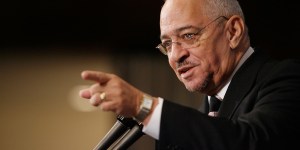
Joshua DuBois was sitting in a restaurant on Pennsylvania Avenue in Washington, DC, when he saw the Democratic National Convention on TV. There on the convention stage was then-Senator Barack Obama. Touching on his faith, Obama said, “We serve an awesome God in the blue states!”
Immediately, Dubois flashed back to his time in the Fellowship of Christian Athletes. They’d get together and sing “Our God is an Awesome God.” It was the first time he had ever heard a Democrat speaking publicly on a national platform about God. Dubois was so moved that he applied for a job as an aide to Obama. While he had been an associate pastor at a Pentecostal church in Boston, he’d moved on to graduate school and an internship on Capitol Hill. Ever since, he’d been grappling with the question of whether to pursue vocational ministry or politics. Dubois found his answer that day: He could have a spiritual impact on the world through politics, not in spite of it.
Two years into their working relationship, DuBois found himself working with Obama on his famous Call to Renewal speech. In that speech, Obama explained that after years of doubting and questioning, working with black churches gave him new perspective. Then one Sunday at church, he was ready to publicly affirm his Christian faith. “It came about as a choice and not an epiphany,” Obama said. “The questions I had didn’t magically disappear. But kneeling below that cross on the South Side, I felt that I heard God’s spirit beckoning me. I submitted myself to his will, and dedicated myself to discovering his truth.”
In 2008, when it came time for Obama to run for president, a new obstacle appeared: his longstanding relationship with pastor Jeremiah Wright. Obama had been public about his membership at Wright’s church, Trinity United Church of Christ in Chicago. It was, he said, the church in which he had “walked the aisle.”
When ABC News reviewed a back-log of Wright’s sermons, they found a number of times in which Wright had railed against the American government, both in the context of history and current events. His sermons pointed to specific instances—such as the Tuskegee Experiment and the Japanese-American internment camps—in which the government had mistreated African Americans and other minority groups. Wright’s conclusion was that “the United States government has failed the vast majority of her citizens of African descent” (as well as others) and that “governments lie.” Insisting the US would be condemned by God for its actions, Wright infamously proclaimed, “No. No. No. Not God bless America. God damn America!”
When pushed to discuss his relationship with Wright, Obama sought to smooth things over with the public by delivering a speech titled “A More Perfect Union,” in which he placed Wright’s comments within a historical and sociological context. Rather than taking the opportunity to let the controversy subside, Wright fanned the flames by making media appearances and giving speeches that echoed the sentiments he had expressed in his sermons.
Politicians such as Vice President Dick Cheney and presidential candidate Hillary Clinton commented publicly on Wright and his relationship with Obama. “You don’t choose your family, but you choose what church you want to attend,” Clinton said in a March 2008 interview with the Pittsburgh Tribune-Review, in reference to Obama’s attendance at Trinity United Church of Christ. “I think given all we have heard and seen, [Wright] would not have been my pastor,” she said later in a press conference.
Obama’s association with Wright didn’t merely complicate his political campaign. It caused a permanent rift in his relationship with the pastor. Wright, the same man who had performed Barack and Michelle’s wedding ceremony, was unceremoniously removed from Obama’s African American Religious Leadership Committee; in May 2008, the would-be President announced that he and his wife had withdrawn their membership from Trinity United Church of Christ, stating “Our relations with Trinity have been strained by the divisive statements of Reverend Wright, which sharply conflict with our own views.”
Obama became deeply private about his faith. According to DuBois, who ultimately became the head of the Office of Faith-Based and Neighborhood Partnerships in the Executive Office of the President, Obama and his family attended various churches around Washington, DC, while he was in office, but never joined one. This lack of regular church attendance, and his Democratic policies on abortion and gay marriage, led some to question whether in fact he was actually a Christian.
The administration chose not to address rumors about the President’s faith. “We figured we had more pressing issues to deal with,” Dubois said. But according to Dubois, Obama’s faith was evident within the White House. While on the campaign trail, he had become close to the Obamas on a personal level. One day, DuBois said the Lord tugged on his heart one morning to send Obama a devotional based on Psalm 23.
“I had never sent an email to his personal Blackberry before. Quite frankly, I thought I was going to get fired for it,” DuBois said. “Instead, he called me and said he had really needed that and asked if I could I send him a devotional every morning.”
DuBois continued to email daily devotionals. He also facilitated prayer meetings for Obama on a regular basis, even hosting a prayer call each year on the President’s birthday with Obama’s closest Christian clergy friends.
Trump’s Media-Concious Advisors
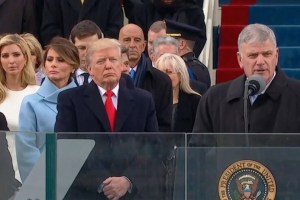
Rarely has a spiritual advisor to the president been more scrutinized than in the case of President Donald Trump. While many pastors have shied away from the limelight and chose to work solely on a personal level with the presidents they served, Trump seems to have relationships with public figures who are well-established in the public eye.
Paula White, senior pastor of New Destiny Christian Center in Florida, met Trump when he called her on the phone after seeing her television ministry broadcast and says she has been praying for him ever since.
“God brought me into Mr. Trump’s life 15 years ago to tell him who God was, to pray over him, to share the Word,” she said.
White has continued to counsel and pray for him over the years, including going to New York each week to pray for him during his transition from president-elect to president. On January 20, 2017, she stood on the steps of the Capitol to once again lift Trump up in prayer as he was inaugurated as the 45th President of the United States.
“First and foremost, I believe my greatest assignment is praying for him, praying for his family, and praying for everyone in the administration,” she said.
Franklin Graham also joined Trump’s team of religious advisers and was chosen to read Scripture at the inauguration. He said he has known the President for 11 years. Like White, he made the acquaintance when Trump picked up the phone to call and show support for Graham after seeing him interviewed on a television news show. He has subsequently become an ardent supporter of Trump, whom he considers “not a politician, but a businessman.”
On the President’s personal beliefs, Graham deferred, saying Trump would be the best one to comment on them: “There’s no question there’s faith there. How deep and how far one has traveled in their faith, only they know that,” Graham explained.
Just as White has found herself personally invested in Trump, Franklin Graham has developed a personal relationship with the president over the years, saying he is probably closer to Trump than he was to George W. Bush, even though the Bush and Graham families have been friends for several generations. He has been vocal about his strong political support for Trump as well.
Meanwhile, other Christian leaders—from Max Lucado to Beth Moore—have publicly spoken out against Trump for a variety of reasons, from his personal behavior to his policies on refugees.
In spite of this controversy, Trump has maintained that he is a Christian; perhaps even viewing himself as a defender of the Christian faith, as indicated by his Facebook response to Pope Francis’ criticism of his stance on immigration: “I am proud to be a Christian and as President I will not allow Christianity to be consistently attacked and weakened, unlike what is happening now,” Trump said in his post.
“Donald Trump’s views are far more aligned with evangelicals than Hillary Clinton’s are. He is very friendly to what we stand for as Christians; he is not opposed to it,” Graham said. “He doesn’t understand a lot of it, but he is not opposed to our faith. He is very friendly to it and very supportive of what I think are the major issues that confront us today.”
Both Graham and White say they believe they are playing an important role in political activism for Christian causes; that Trump’s positioning of himself as a champion of Christianity with the evangelical right has given pastors close to the President a unique opportunity to influence and shape public policy.
White has described herself as a “bridge builder” between the President and the Christian community. She told Christianity Today that part of her current role with Trump is to share what is important to Christians with the President. She and the other members of his religious outreach team have been able to put forth ideas on policies, even advising Trump on Supreme Court justice nominations.
The role of spiritual advisor or counsel to President Trump has not come without controversy, however, and in White’s case, the public attention has been on both the President and the pastor.
Some have questioned White’s theology, accusing her of peddling a prosperity gospel and even calling her a “heretic.” White, a proponent of the Word of Faith movement, has made public statements addressing the complaints levied against her, including an accusation that she has denied the Trinity. Despite the controversy, White remains involved with President Trump.
A God Bigger Than the Presidents
For Franklin Graham, the motivation to become involved with a sitting president is self-evident. “As a minister, you shouldn’t shy away from someone just because they are powerful. Counsel them from God’s Word—they need to know what he has to say,” Graham advised. “And try to develop a relationship with them. That way, from time to time, when you call them, they’ll pick up the phone. And then when they’re going through some difficulties, call them and encourage them.”
But the real question for Christians interested in influencing Washington is not whether they desire a seat at the table, but just how prominent a role they’ll want to play. As Graham learned from Nixon, and Wogaman to a lesser extent from Clinton, the risk of scandal is real. The more heightened media focus is on the relationship, the more significant the possibility of personal sacrifice becomes, welcome or not.
Meanwhile, DuBois said he is committed to praying for the new President: “We need to seek God’s face for these men that are in this role, and pray for them frequently, even when we disagree with them.”
“We believe in a God that is even bigger than presidents.” DuBois said.
While the eyes of the media glare elsewhere, DuBois continues to send devotionals to Obama every day. He still identifies as a progressive and is active in social justice issues through his business Values Partnership, but he too seeks to influence Trump.
“If there are ways we can work together on strengthening human dignity for people who are vulnerable and marginalized, then I’m all for it,” Dubois said.
“I have deep concerns for where we are right now, from immigration to criminal justice reform to the environment. So, I’ll look forward to being a part of a coalition that will hold the new President accountable on these issues. But when he gets it right, we’ll let him know.”
Linda W. Perkins is a freelance writer whose career has taken her from interviews with Henry Kissinger and Chinese acrobats, to meetings with top technology executives and the FBI. She lives in Houston with her husband and daughter, and is the author of Spring Sight, a Christian devotional blog offering hope to people with chronic illnesses.

